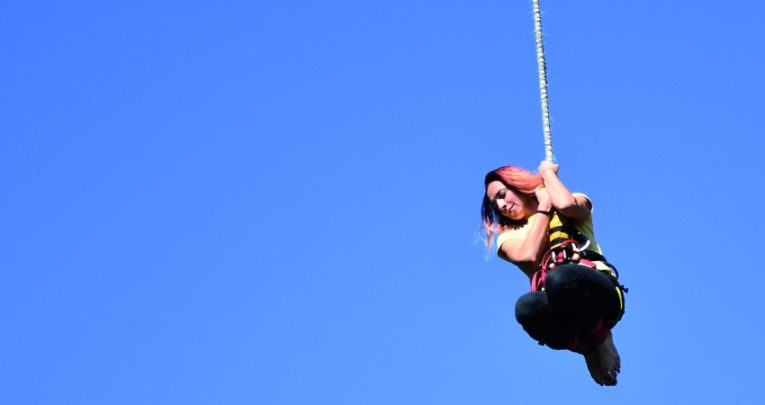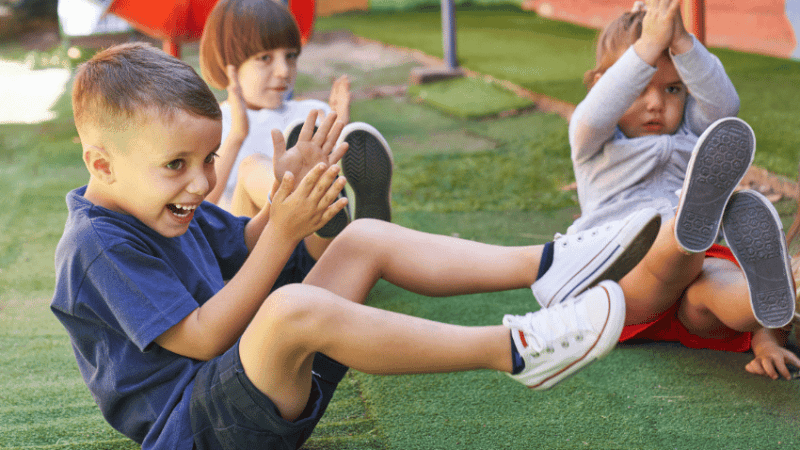Outdoor education – Why it’s good for young people to be scared

Schools obviously shouldn’t put students in danger – but exposing them to the kinds of controlled risks encountered during outdoor adventure activities can do much to build their resilience, says John Allan

- by John Allan

It’s widely accepted that young people experienced worse mental health outcomes, and experienced more acute feelings of loneliness, during the pandemic than adults.
It’s a view supported by findings from The Royal Society for Public Health and The Children’s Society’s ‘Good Children Report 2022’ – the latter of which revealed a deeply concerning continual decline in children’s wellbeing.
The report highlights in particular how the pandemic prevented young people from physically interacting with friends at a crucial point in their psychosocial development, which in turn contributed to an existing downward trend in their levels of mental health.
Beneficial outcomes
It’s important to remember that even before the onset of COVID-19, growing numbers of youngsters were already showing high rates of emotional distress and fragility, which hindered their capacity for overcoming threats to their wellbeing.
This apparent lack of resilience – the learned capability to adapt to adversity – has coincided with steadily increasing pressures and expectations on young people, including exam workloads, over-protective parenting, peer pressure and social deprivation. The pandemic may have been an unprecedented challenge of global proportions, but it served to reveal – and indeed, exacerbate – the limited resilience of young people to being able to adapt to change.
Public health institutions have long pointed to the health and wellbeing benefits to be had by exposing young people to outdoor adventure. Even short periods of time spent in nature can significantly improve a young person’s levels of mental health. Five minutes of exercise in an urban green space can be enough to boost their physical and mental wellbeing by fostering ‘biophilia’ – an individual’s sense of innate connection to nature.
There continues to be a broad evidence base suggesting that outdoor adventure experiences in natural spaces can contribute significantly to young people’s holistic development, with residential trips being a key tool for delivering such experiences.
They can give rise to many beneficial outcomes, a number of which appear to be retained over time, including increased independence, improved confidence, greater self-belief, the development of effective coping strategies, sociability, and improvements in both long-term memory and problem-solving, among others. These can all feed into and build an individual’s reserves of resilience.
‘Surviving’ to ‘thriving’
When we speak of ‘resilient behaviour’, we’re referring to a spectrum that can range from ‘surviving’ to ‘thriving’. For individuals with limited prior experiences to draw upon, the prospect of having to deal with an apparently dangerous or threatening situation will trigger a survival response that’s likely to be accompanied by heightened emotions and difficulties in making decisions.
That said, similar reactions may also occur in the face of activities that fail to stimulate interest and restrict autonomy. The sweet spot entails activities that will invigorate our emotions, yet also encourage us to think more clearly; tasks which see us draw on our existing memories in order to create new ones, and which are open-ended, promote choice and offer personal support.
The post-pandemic return to school gave young people a safe place in which to mend, move and once again meet people – but there’s arguably only so much re-conditioning that can be achieved in the context of the classroom where routines and consistency are rigorously applied. For a student in a slump, going through the same motions each day may even compound the problem.
Conversely, outdoor adventure learning can provide them with authentic, meaningful experiences in which they’ll be challenged to build a repertoire of behaviours through facing their fears. These learned skill sets – which can variously include physical skills, health knowledge, the development of social support networks and wider attentional focus – can then be called upon when a future situation of uncertainty demands it. But, how is this adaptive capability built through outdoor adventure learning?
Scaled risk-taking
Resilience is ultimately achieved by young people taking risks. Without that element of risk being involved, resilience won’t enter the picture. What outdoor adventure activities are great at is offering a blend of negative emotions – the sensation of feeling scared, or unstable in the moment – counterbalanced by positive emotions stemming from a sense of achievement or triumph. Both are essential underpinnings for the ‘steeling effect’ that ensures young people are better prepared to handle more significant risks in future.
The challenges in question will need to be invigorating, interesting and personally meaningful enough for individuals to overcome perceived threats to their wellbeing, without presenting seemingly insurmountable barriers to their achievement.
It’s this careful scaling of intelligent risk-taking that facilitates young people being able to successfully deal with risk exposure, while also delivering meaningful learning. On the flipside, activities which serve to overprotect young people and restrict their exposure to risk-taking and engagement with the outdoors may wear away their resilience.
Trending
Critics of outdoor learning have argued that any positive outcomes arising from such experiences will be largely based upon untested assumptions that ‘the outdoors works’. They will contest that exposure to outdoor activities doesn’t build positive characteristics in young people through some automatic process, but rather serves up situations in which individuals will experience short-term novelty, or feel compelled to take part – with the result that any developmental outcomes won’t readily transfer over to everyday settings.
Adaptive quality
While it’s true that outdoor adventure learning is certainly no magic bullet capable of ‘fixing’ young people, robust studies have shown that it can and does deliver meaningful educational outcomes when deployed in exciting, natural settings that build assorted other strengths in young people.
This adaptive quality allows people used to learning in multi-sensory environments – where situations aren’t uniform and predictable – to perform better across a range of physical and cognitive tasks, compared to those attending uni-sensory settings.
What’s more, those outdoor residential programmes that report the most impactful and long-lasting benefits tend to be those that tailor their activities to meet the needs of different learners. For example, collaborations between outdoor adventure facilitators and secondary school teachers can give rise to the successful embedding of qualities associated with a school’s ethos in a programme’s design.
This approach has previously allowed children to plan some of their activities ahead of time; connect outdoor learning to curriculum subjects; become more familiar with their school’s expectations; undertake independent risk-taking; and review natural emerging experiences.
To consolidate their learning, children have been encouraged to move from describing outcomes and applying basic problem-solving to appraising and presenting an understanding of skills needed to achieve in school. Given the mental health problems of young people outlined at the outset, arguably, it has never been more important to facilitate opportunities for them to be immersed in outdoor adventure.
From passive to active
Many children struggle when making the transition from primary to secondary school, or even to a new year group. Pupils who are able to participate in an outdoor residential programme as part of their induction have been shown in studies to have significantly improved preparedness for challenges presented by secondary school – so here’s how to make the most of your transition trip:
Involve teachers ahead of time
Work with your provider on the outcomes you need, and ensure they’re introduced in the classroom ahead of the trip
Give pupils responsibility for the trip
Plan how they can review their experiences or collect data during activities for a project back at school
Show pupils what they’ll be studying
Think about how their ‘new’ studies of discrete subjects – English, maths or PE, for example – can be introduced through the residential experience
Encourage co-operation
Early on, get children working together in groups so they can build relationships and share experiences
John Allan is head of learning and impact at the outdoor activities provider, Kingswood, having been a lead academic and outdoor practitioner in sports pedagogy, psychology and adventure education for more than 25 years; for more information, visit kingswood.co.uk










